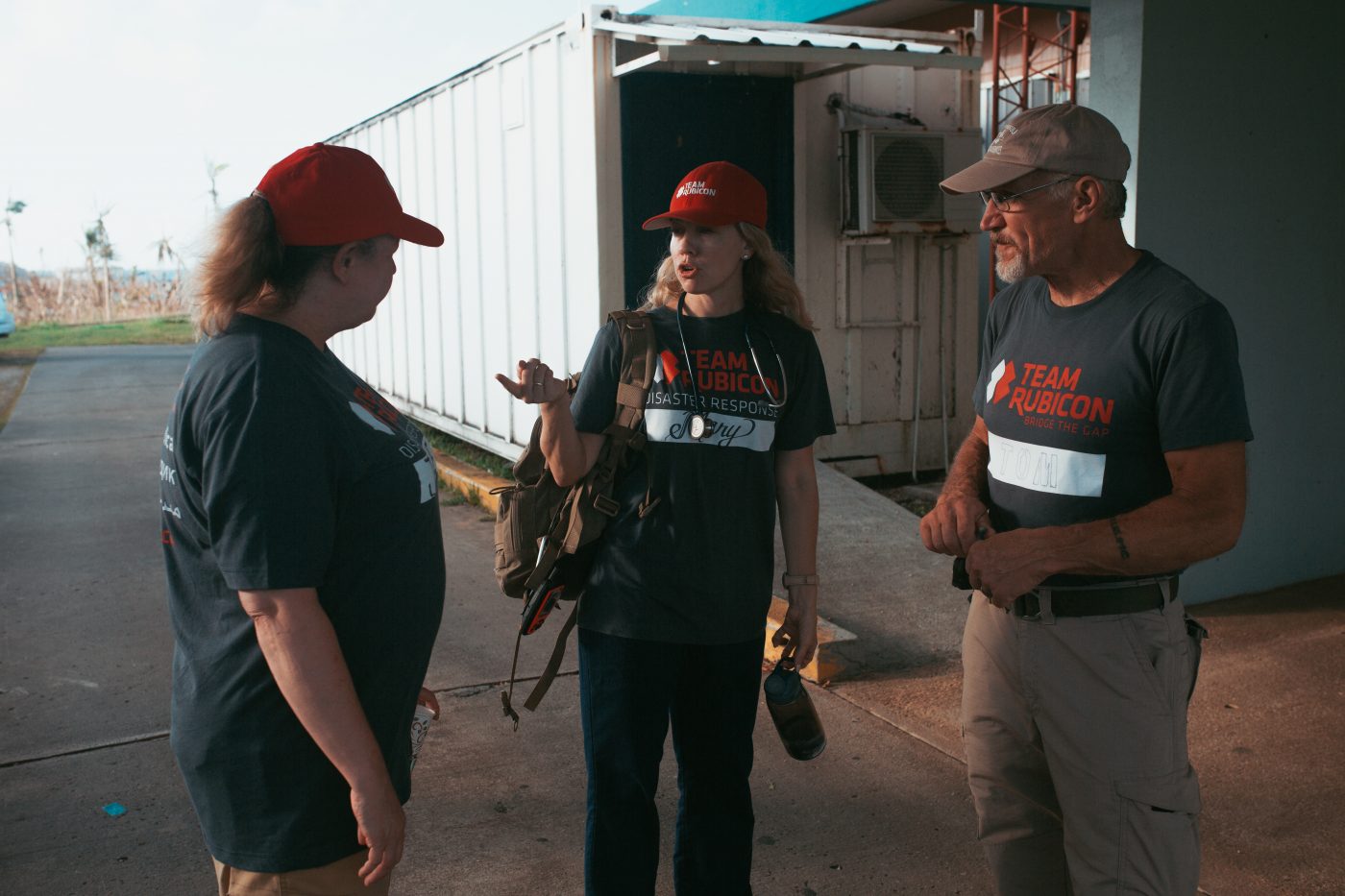Four days ago, on Monday, November 5, one element of our Emergency Medical Team (EMT) traveled from Tinian to Saipan on three, very small six-person planes that were fit for an Indiana Jones movie.
Once in Saipan, we quickly got our Forward Operating Base (FOB) established in an abandoned building and then spent the evening meeting with the Commonwealth Healthcare Corporation’s (CHCC) medical director, CEO, and the Operations Section Chief for their response to get our marching orders. After we returned to the FOB, we had our daily debrief, set our strategy for Tuesday, and went to bed eager for the opportunity to get out in the field and provide aid to residents of Saipan affected by Super Typhoon Yutu.
Tuesday morning started the same as every other day on this operation. We woke up bright and early to our Task Force Leader, Dr. John Roberts, blaring Sheena Easton’s “9 to 5” (aka Morning Train). Strangely enough, this song has become our team’s morning reveille (pronounced: ‘re-və-lē’) – our rallying call. We hear it, it provides an instant boost to morale, then we all get up, lace-up our boots and go tackle the day – doing whatever is asked of us to help the communities we’re serving.

Over the last four days in Saipan, our mobile medical mission has been a bit different than what we were doing in Tinian. Instead of making house calls on foot or by car to treat homebound patients, our mobile EMT has predominantly been providing direct medical care, vaccine delivery, referral services, and disease outbreak monitoring in southern Saipan via short-term mobile field clinics for populations outside of the island’s shelters that are having difficulty accessing care. That being said, our mobile EMT has still made the occasional house visit in Saipan to treat patients that couldn’t make it to the mobile field clinic.
The CHCC has selected sites in particularly hard-hit areas that they believe have a high percentage of people still living and sleeping in their homes, despite obtaining significant structural damage from Super Typhoon Yutu. This week, our mobile EMT in Saipan has seen and treated 425 patients and given 418 vaccinations.
One of the most important, but least talked about, aspects of TR medical operations – and public health for that matter—is something called “WASH”. WASH stands for “Water, Sanitation, and Hygiene.” On this response operation, we’ve had our WASH Specialist, Rick Treiss from New Hampshire, on our team ensuring we have sustainable access to clean water for drinking and hygiene. And, in Saipan, Rick has stepped even further into the arena to help on the WASH front. Over the last four days, he has been working directly with the CNMI Bureau of Environmental and Coastal Quality to conduct surveys of bottled drinking water producers to determine their operational status and provide the U.S. Public Health Service (USPHS) with relevant information on the current status of locally produced potable water. Rick has also helped conduct several shelter assessments to ensure the maintenance of sanitary standards along the entire course of water delivery.

Meanwhile, the EMT in Tinian is continuing to kick-ass staffing and running the Tinian Health Center 12 hours per day. Because our team has stepped up to staff the Center over the last two weeks, their medical providers were able to collectively take an additional 600 plus hours off work, allowing them to deal with damage to their own homes and care for their own families. This is significant because 85 percent of the Center’s medical provider’s homes were either damaged or destroyed during Super Typhoon Yutu. And on the medical services front, this team has seen and treated 144 patients.



